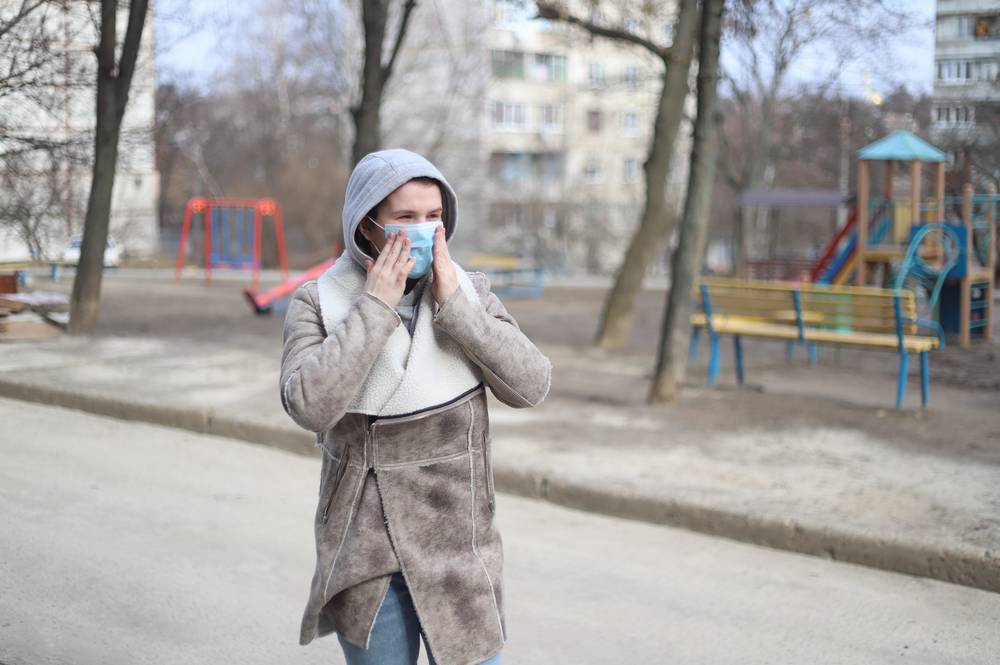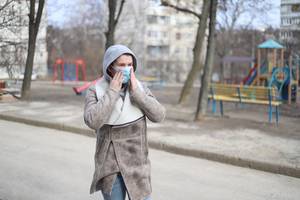The Human Rights Ombudsman's office wishes to point out that it has not been involved in the preparation of the so-called "anti-corona act", nor has it had an opportunity to convey any opinions or views about it. This also holds true of those legal arrangements that could have had greater impact on the protection of human rights and fundamental freedoms or on legal security in the country. So far, we have not been used to such practice (especially with regard to amending and supplementing the normative framework concerning the police’s operation).
Over the past two weeks, we have stressed several times that the approach to prevent the spread of the epidemic should be made in a way that guarantees the respect for human rights and freedoms. If the responsible authorities devise measures that could restrictively interfere with fundamental rights, they are expected to provide solid justification for such interventions and not only inform the public about their decision to adopt a measure, but also give a more detailed explanation as to the necessity to restrict (in any case only temporarily) the fundamental building blocks of a democratic state. Moreover, the principle of proportionality requires balance between the reasons in favour of a particular intervention and the values, due to which freedom of association has a special place in democratic societies. We have also drawn attention to the fact that interference does not meet the requirement of necessity (in a democratic society) only by making it seem convenient or desirable; interference with freedom must be based on persuasive and solid grounds if it is to be permissible under the European Convention for the Protection of Human Rights and Fundamental Freedoms.
We welcome the main objective of the proposed act, which is to mitigate the consequences of the COVID-19 epidemic for citizens and the economy through taking measures in different areas, and point out that equality before the law must be complied with. In particular, when it comes to the envisaged interference with human rights, respect for the principle of proportionality seems to be missing (not even listed among the principles highlighted in the reasoning of the act).
Justification that all envisaged measures are really urgent is a complex task (e.g. police power to enter homes and other premises, tracking means of communication). Any interference with the guaranteed rights of individuals should be regulated as precisely as possible in full consideration of the criteria set out in the Constitution – in connection with this we would like to point out that it is not clear from the proposed act whether entry by the police into an apartment or other premises is possible without a relevant court decision.
As regards Article 104, we are faced with the issue of whether the situation really is such that it requires individuals to renounce privacy, as we have known it so far, for the sake of ensuring the public interest concerning public health. Even though this refers to an exceptional situation requiring extraordinary and comprehensively devised measures, this does not mean that anything may be permitted. Collecting data on the location of a means of communication (and thus a person) through a mobile operator depends on the consent of a person involved; however, the question arises as to how much such consent is based on a truly free will and what are the consequences if that person refuses to give consent (extremely vaguely defined in the proposal; however, it is assumed that an individual refusing to give consent would be subject to a more aggressive interference with freedom of movement or personal freedom). At this point, the key issue seems to be the proportionality of the interference with the right to privacy and protection of personal data and the manner in which the exercise of powers may affect groups of the population who do not have access to such technology or do not even use it.
Obtaining location data certainly cannot be considered in any of the measures imposable under the Communicable Diseases Act. The legislator is expected to explicitly specify the measures based on which information on the location of an individual may be obtained. Another issue is that of the storage of data thus collected and of the control over the exercise of such power.
Vacatio legis – considerable changes have been envisaged involving the imposition of large fines (under Article 107, it is possible to impose a fine in a fast track procedure in the amount exceeding the minimum prescribed fine set by the Act), therefore, it is questionable how the people can be informed about the Act and act in compliance with it.
In addition, the Act still does not provide a solution for some existing measures with ambiguous legal basis - concerning, for example, the abolition of visits to imprisoned persons, the ban on leaving homes for the elderly and other interventions.
The time limits of the planned interference (loose and extensible) seem to be questionable; what is also needed is clear control and verification of the decisions taken.
It should not be overlooked that the health inspector is acquiring (too) strong powers.
The Ombudsman's opinion on the so-called "anti-corona act"

Photo gallery
(1)
